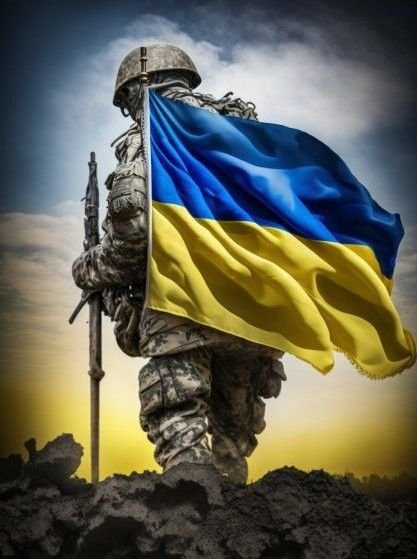The war in Ukraine stands as one of the most significant and devastating conflicts of the 21st century, rooted in decades of political tension, historical grievances, and competing ambitions. Following Ukraine’s independence from the Soviet Union in 1991, the country sought closer ties with Europe and the West, striving to build a democratic and sovereign nation. Meanwhile, Russia, determined to retain influence over its former territories, viewed these moves with growing suspicion and hostility. The tensions erupted violently in 2014, when Russia annexed Crimea after a controversial referendum. Around the same time, pro-Russian separatists in eastern Ukraine’s Donbas region—including Donetsk and Luhansk—rose up against the Ukrainian government, sparking years of sporadic fighting, failed ceasefires, and thousands of deaths.
For years, the world watched the simmering conflict, hoping for a peaceful resolution, but on February 24, 2022, diplomacy gave way to full-scale war. Russian forces launched a massive invasion of Ukraine, striking from multiple fronts and claiming their mission was to “demilitarize and denazify” the country. The world, however, saw it as an aggressive move to prevent Ukraine from joining NATO and deepening ties with the West. Cities were bombarded, homes destroyed, and millions of civilians forced to flee, creating one of the largest humanitarian crises in modern history. The invasion triggered sweeping international sanctions against Russia and prompted an unprecedented wave of support for Ukraine, including military aid, economic assistance, and humanitarian relief from countries around the globe.
As the war raged on, battles in eastern and southern Ukraine—particularly in cities like Bakhmut, Mariupol, and Kherson—became symbolic of the resilience and courage of the Ukrainian people. Ukrainian forces, armed with advanced Western weaponry, mounted determined counteroffensives to reclaim occupied territories, often at enormous cost. Beyond the immediate destruction, the conflict has reshaped global politics, disrupted energy markets, and challenged international norms, serving as a stark reminder of the fragility of peace in a turbulent world.
Yet amid the devastation, stories of heroism, solidarity, and hope continue to emerge. From civilians sheltering families in underground bunkers to international allies delivering critical supplies, the human spirit endures. While a lasting peace remains uncertain, the war in Ukraine has become a defining moment of our era—one that continues to test nations, leaders, and ordinary people alike.
As of September 2025, the situation in Ukraine remains intense and precarious, with the war continuing to devastate the country. Fighting is concentrated in eastern and southern regions, particularly Donetsk and Zaporizhzhia, where Ukrainian forces are defending key territories while also launching counteroffensives to reclaim areas occupied by Russian troops. In the north, near Sumy, Russian attempts to advance have largely been halted, though sporadic shelling and drone attacks persist. Ukraine has also carried out long-range strikes targeting Russian military infrastructure and critical oil facilities, such as the Primorsk oil terminal, aiming to disrupt Russia’s financial resources and pressure them toward negotiations. The humanitarian impact is severe: millions of Ukrainians have been displaced, with approximately 3.7 million internally and 5.7 million seeking refuge abroad, while civilian casualties remain significant despite a slight reduction in attacks on urban areas. Diplomatic efforts are stalled, as peace talks have paused amid accusations from both sides, but Ukraine continues to receive substantial military and humanitarian support from Western allies. The conflict’s effects extend beyond Ukraine, impacting global oil markets and regional security, particularly in neighboring NATO countries like Poland, where Russian drone incursions have caused heightened military alertness. Overall, Ukraine remains at the center of a complex, ongoing war, marked by fierce battles, widespread destruction, and enduring international concern.
Prince Harry’s surprise visit to Ukraine brought a powerful message of hope and solidarity amid the ongoing war. Arriving unannounced, he spent time with wounded soldiers and civilians, offering words of encouragement and personal support that lifted spirits in a country still grappling with conflict and uncertainty. Beyond the emotional impact, his presence highlighted international attention on Ukraine’s struggles and resilience, reminding both Ukrainians and the world that their courage and determination are recognized globally. The visit also symbolized the importance of unity and compassion during crises, providing a moment of inspiration that gave many a renewed sense of optimism despite the hardships of war.
